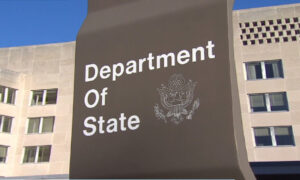
The message suggests a growing loss of confidence among U.S. diplomats in President Joe Biden’s approach to the Middle East crisis. It reflects the sentiments of many U.S. diplomats, especially at mid-level and lower ranks, according to conversations with several department staffers as well as other reports. If such internal disagreements intensify, it could make it harder for the Biden administration to craft policy toward the region.
The memo has two key requests: that the U.S. support a ceasefire, and that it balance its private and public messaging toward Israel, including airing criticisms of Israeli military tactics and treatment of Palestinians that the U.S. generally prefers to keep private.
The gap between America’s private and public messaging “contributes to regional public perceptions that the United States is a biased and dishonest actor, which at best does not advance, and at worst harms, U.S. interests worldwide,” the document states.
“We must publicly criticize Israel’s violations of international norms such as failure to limit offensive operations to legitimate military targets,” the message also states. “When Israel supports settler violence and illegal land seizures or employs excessive use of force against Palestinians, we must communicate publicly that this goes against our American values so that Israel does not act with impunity.”
The memo is marked “sensitive but unclassified.” It’s not clear how many people signed it or if and when it was submitted to the department’s Dissent Channel, where employees can voice policy disagreements. It’s also not clear if the document was revised in any way beyond the version obtained by POLITICO.
Still, the arguments in it offer a window into the thinking of many people at the State Department, which has long been vexed by the decades-old Israeli-Palestinian conflict.
The department declined to comment directly on the memo, as is standard on such communications. It referred POLITICO to past statements by spokesperson Matthew Miller, who has said Secretary of State Antony Blinken welcomes such arguments and weighs them carefully.
